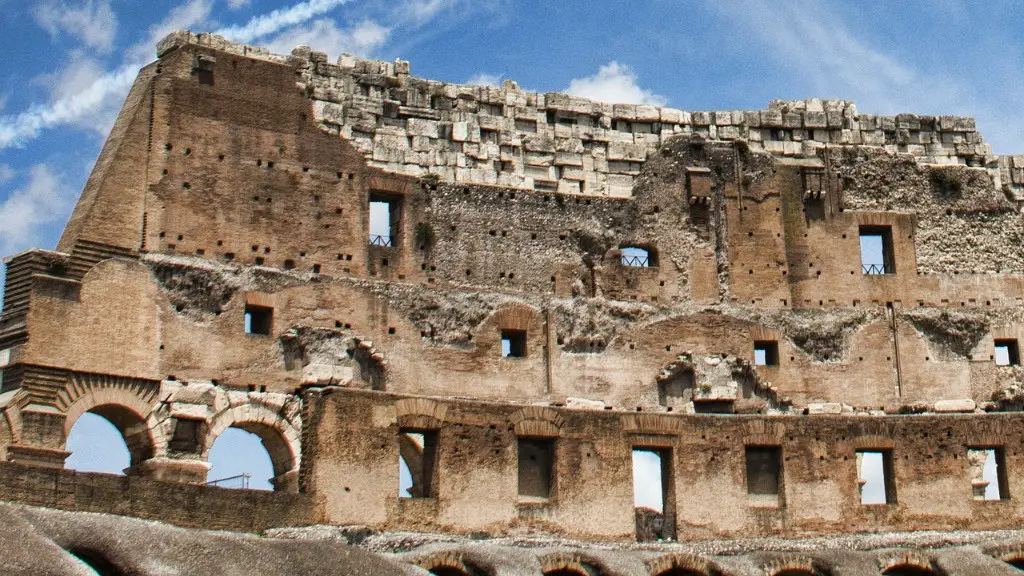Who Was Cincinnatus in Ancient Rome?
As one of the long list of Rome’s most esteemed and celebrated figures, Marcus Minucius Cincinnatus stands high amongst his peers. Adored in Republican Rome for his selflessness on behalf of his country, Cincinnatus embodied the stoic values of service and courage that Rome so highly valued.
Born in the early 5th century BC, to a once wealthy Roman family, not much is known about Cincinnatus’s life prior to being summoned to defend Rome against an Aequian invasion. But, when it’s time came, Cincinnatus responded with a sense of patriotism that would become legendary.
In 458 BC, Rome fell under attack–a particularly formidable one, might I add–and the senate chose Cincinnatus to lead the defense. As was customary, the position of Dictator was appointed to Cincinnatus and gave him full power over military matters. Far from the tyrant would-be one might associate with such a title, Cincinnatus chose to use his power in favor of Rome’s defenses, rather than its enrichment.
Using his expert strategy, Cincinnatus quickly routed the enemy. But his actions thus far were only the first of many of his astounding feats. Upon victorious being declared, Cincinnatus stepped down from his position without boasting, proclaiming that “The enemy was not destitute of spirit when they obtained their subsistence, but want of courage when they yielded”. Instead of using his newfound power to reward himself, he took on the courtesy title of “Father of his Country”, thanks to his remarkable courage, and stepped down from power, so as to empower others.
The Meaning of Cincinnatus’s Legacy
Cincinnatus’s story became a symbol of courage, humility, and service; Romans from all classes flocked to him as a symbol of dedication to the nation. But perhaps most notably, Cincinnatus was celebrated for his eagerness to step aside and relinquish power. To a nation so aware of the potential for tyranny, this act of humility marked a shift towards an image of the ideal politician—one who serves their constituents and their nation, rather than their own ambition.
But it’s important to note that Cincinnatus’s story wasn’t so much one of military genius. After all, plenty of other Roman leaders, such as Julius Caesar, also held a significant amount of skill in military strategy. Instead, Cincinnatus was celebrated for prioritising the wellbeing of Rome above his own interests; he chose service and duty over power and wealth. This wasn’t so much an act of bravery, but of morality.
Though Cincinnatus’s story has been revered and repeated by all kind of people for centuries, it wasn’t until the mid-1780’s that his legacy truly lived on. It was in America, at the height of the American Revolution, that Cincinnatus found a new meaning. Just as ancient Rome had been happy to glorify a leader for his morality, so too was America, which quickly adopted the ideas of service and humility that Cincinnatus had championed. He was, so to speak, a Founding Father in a second wave of patriotism.
Serving in Tradition
Cincinnatus’s legacy lives on to this day, most notably in 2004 with the establishment of the Cincinnatus society, a non-profit organization dedicated to promoting leadership, behavior, and service qualities in the public domain. The institution is also, naturally, named after Cincinnatus and its motto pays tribute, “Serving in Tradition”.
To this day, Cincinnatus’s legacy serves as an inspiring reminder of the power of service, humility, and morality in leadership. No matter in what corner of the world you may find yourself, Cincinnatus’s story of courage and bravery serves as a reminder that politics and morals are not mutually exclusive, and that one can in fact, serve others, and serve themselves all the same.
The Journey of Cincinnatus
Historians continue to be fascinated with the journey that Cincinnatus took from a farmer to a beloved hero of the republic. Detailed records of Cincinnatus’s military victories and appearances have been preserved by those who have told his story. Historians have found that these records help to paint a vivid picture of what the Ancient Roman Republic was like at the time and how Cincinnatus became the man that he was.
Through examining these records, historians have discovered evidence to suggest that Cincinnatus’s military successes were achieved with a much smaller force than that of the enemy. This only highlights the strategic mastery and bravery of Cincinnatus, who was able to organize and deploy a more elite force to defeat the larger enemy forces. His victories are also attributed to his ability to stay calm during times of great stress, as evidenced by his famous words ‘Our enemies have been so wise as to yield without a blow”.
What is perhaps most remarkable about Cincinnatus is the fact that he was able to step down from his position of power even after his impressive military successes. History books often depict this as a metaphor for serving the country rather than oneself which resonates even to this day. There are numerous statues, busts and other artworks that depict Cincinnatus in recognition of his accomplishments and his example as a leader.
The Truth About Cincinnatus
For all his glory and honor, Cincinnatus was still only human and was no saint. It is little-known fact that Cincinnatus owned many slaves and had a rather sizable estate in the Roman countryside, which was not typical of a humble citizen such as he was purported to be.
In addition, records of Cincinnatus’s past include references to petty squabbles, usually of a political nature. This shows that Cincinnatus was still a typical Roman citizen at his core, and that his rise to power was based on merit and luck, just as any other’s would have been.
These inconsistencies are what make Cincinnatus such a fascinating character, as it’s impossible to separate his humanity from his legend. It is this complexity that allows us to empathize with Cincinnatus’s motivations and his story today, thousands of years later.
The Impact of Cincinnatus
Cincinnatus’s legacy and wide-reaching influence on modern society is undeniable. His name has been adopted by numerous businesses, schools, and organizations throughout the world, a testament to the lasting impression he has made on modern society. He is an adopted namesake of many clubs, clubs, organizations and other groupings, from the ancient world to the modern day.
There have been many attempts to recreate the legacy of Cincinnatus, however few have achieved the lasting impact of the original. Whether through direct recreation or through emulation, Cincinnatus’s story of service, leadership, and courage will continue to be remembered and admired for centuries to come.
The Relevancy of Cincinnatus to Our Times
Though Cincinnatus has been gone for two millenia, he and his message still resonate strongly in the current times. His story serves as an example that moral leaders and politicians are capable of putting the country first, before the individual. By determining duty and honor before ambition, many of today’s leaders could take a page out of Cincinnatus’s book, and all would be the better for it.
But perhaps more importantly, the story of Cincinnatus is one of leadership, courage and humility. Instead of pursuing power or personal gain, Cincinnatus wanted to serve his country. His actions live on as a reminder of what a true leader should aspire to be, and of the call for moral governance. Ironically in a post-modern, democratic era, the story of Cincinnatus could not be more relevant.
The Legacy of Cincinnatus’s Name
The moral and political lessons taught by Cincinnatus live on to this day. His name has been used to honor service-minded members of society, from police officers to presidents. In modern times, organizations such as the Cincinnatus Society are dedicated to public service and honoring Cincinnatus’s legacy.
Cincinnatus’s legacy lives on in the form of monuments, art works, stories and of course, other people. In every corner of the world, Cincinnatus’s message of service and humility is being revered as something to aspire to and to honor.
Conclusion
Whether you’re a leader, a student of history, or simply a citizen looking for guidance, Cincinnatus should be remembered. He stands as one of the founding fathers of Rome, and by championing justice and service, he serves as an example of a truly moral leader. Though we may never emulate his caliber of courage and patriotism, Cincinnatus will always stand tall as an example of what we should strive for.





